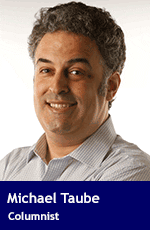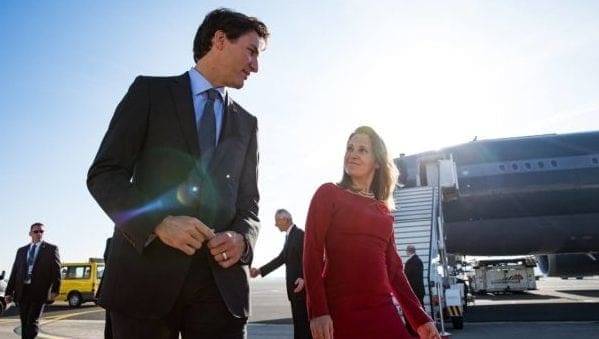 We live in a world where “fake news” is used with near-reckless abandon. But there are moments when real news gets lumped into this category. It blurs fact and fiction, and changes a narrative not for the better but for the worse.
We live in a world where “fake news” is used with near-reckless abandon. But there are moments when real news gets lumped into this category. It blurs fact and fiction, and changes a narrative not for the better but for the worse.
Here’s a recent example.
Canada recently tossed out four Russian diplomats and refused entry to three others. The federal Liberal government claimed it was to show solidarity with the United Kingdom after former Russian spy Sergei Skripal and his daughter, Yulia, were poisoned and found on a park bench in Salisbury, England. (Both are recovering and the latter was released from hospital.)
This explanation made sense. Other western democracies did the same, including America, which expelled 60 Russian diplomats.
The story then took a bizarre turn when Canada’s Foreign Affairs Minister Chrystia Freeland released a statement claiming the Russian diplomats used their status “to interfere in our democracy.” No one knew what she was talking about. Maybe they were the ringleaders of the Skripal poisoning or perhaps there was a national security breach.
Freeland wasn’t forthcoming with details but Prime Minister Justin Trudeau did her dirty work. He claimed these “Russian propagandists” were expelled because they spread false stories about Freeland’s late grandfather, Michael Chomiak (formerly Mykhailo Khomiak), being a Nazi collaborator during the Second World War.
Yet the historical record appears to show the Russians were actually telling the truth.
Chomiak was a Ukrainian nationalist who fled the Soviet Union and went to Poland. When he died in 1984, his personal papers were acquired by John-Paul Himka, a University of Alberta history professor and Freeland’s uncle by marriage.
During Himka’s research, he unearthed several copies of a Ukranian language newspaper, Krakivs’ki Visti. It originally had Jewish owners, but was taken over by the Nazis and turned into a vehicle of anti-Semitic propaganda. Much to his horror, he discovered his father-in-law was Khomiak, who served as this hateful publication’s chief editor.
In Himka’s 1996 Journal of Ukrainian Studies essay about Krakivs’ki Visti and Ukrainian Jews, he wrote that Chomiak’s papers “constitute the fullest set of editorial documentation of any of the legal newspapers published in Nazi-occupied Poland.” This information helped him identify many authors of these anti-Semitic articles, “none of whom signed their real names to these contributions,” which had been demanded by Nazi press chief Emil Gassner.
It’s also worth mentioning that Chomiak escaped Poland during the war and edited the paper in Austria. Why? Here’s one plausible theory: the Soviets, who were advancing in Poland, often captured and killed Nazi collaborators.
Chomiak came to Canada in 1948 and buried this tale. Freeland has repeatedly denied any knowledge of her grandfather’s alleged Nazi collaboration. She believes the claims are part of a broader program to spread Russian disinformation “to destabilize western democracies” and that he was secretly working for the anti-Nazi resistance.
No proof of her claims exist. When it was revealed in the Globe and Mail last year that Freeland helped edit Himka’s essay, the doubts began to increase in some circles of interest, too.
If we accept the latter version of the story, one can obviously sympathize with Freeland’s inability to come to terms with this stain on her family’s history. Nevertheless, she has to acknowledge what’s been revealed about her grandfather’s past, and establish a clear distinction between her views and his views.
This wouldn’t be difficult to do – and wouldn’t diminish her love for her grandfather in the slightest.
Otherwise, Freeland leaves the horrible impression she tossed four Russian diplomats not out of solidarity with the U.K. but for her own satisfaction. That’s not fake news, I’m afraid.
Troy Media columnist and political commentator Michael Taube was a speechwriter for former prime minister Stephen Harper.
The views, opinions and positions expressed by columnists and contributors are the author’s alone. They do not inherently or expressly reflect the views, opinions and/or positions of our publication.


